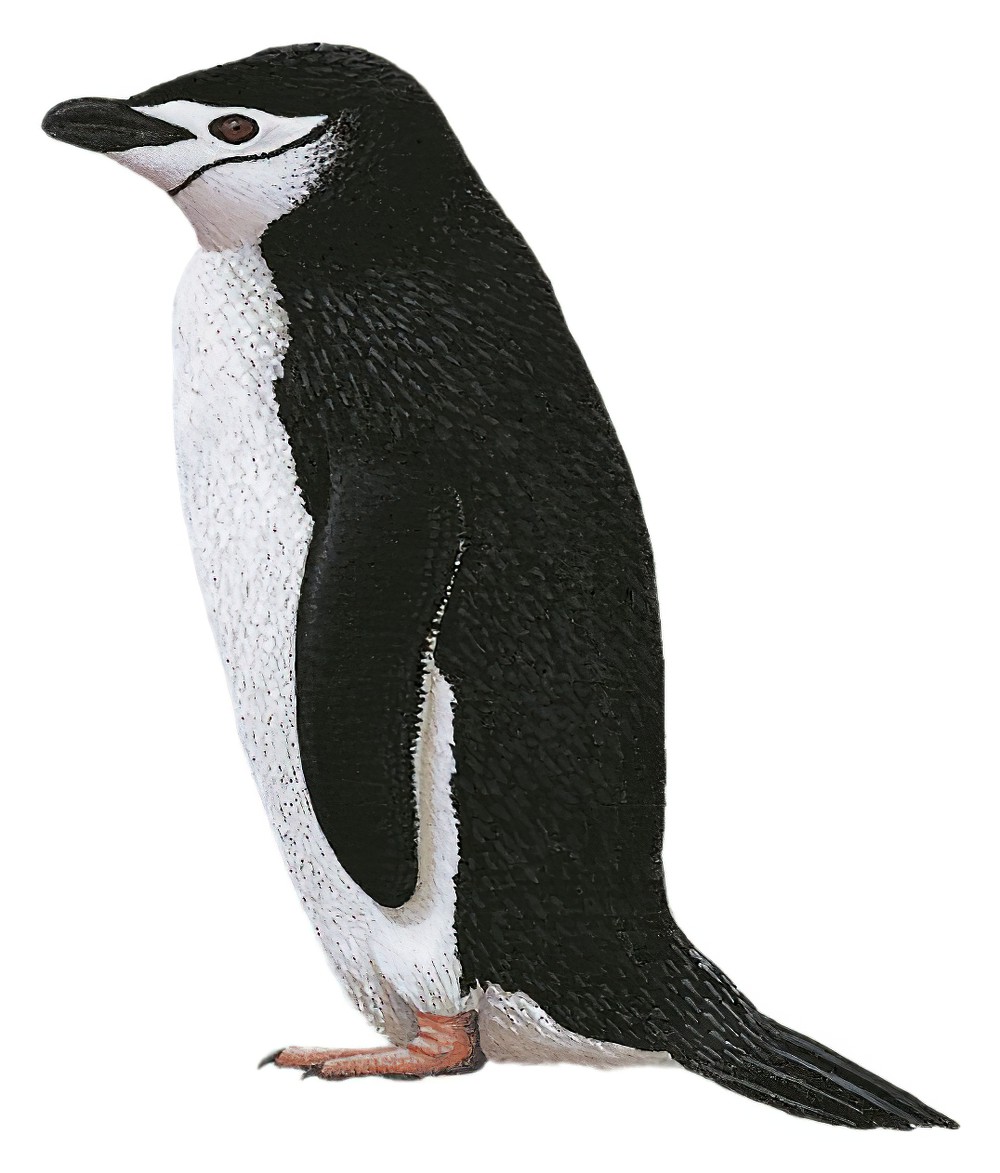Chinstrap Penguin / Pygoscelis antarcticus

Chinstrap Penguin
SCI Name:
Protonym: Aptenodytes antarctica Comment.Phys.Soc.Reg.Sci.Gotting. 3(1780) p.134,141 pl.4
Taxonomy: Sphenisciformes / Spheniscidae / Pygoscelis
Taxonomy Code: chipen2
Type Locality: South Shetlands.
Author: Forster, JR
Publish Year: 1781
IUCN Status: Least Concern
DEFINITIONS
PYGOSCELIS
(Spheniscidae; Ϯ Gentoo Penguin P. papua) Gr. πυγη pugē rump; σκελος skelos leg (cf. “= elbow legs” (Hockey et al. 2005)); the short legs of the Gentoo Penguin are set far back on the body, forming, with the stiff tail, an efficient rudder for submarine swimming and pursuit, whilst the wings give powerful propulsion; "Genus Pygoscelis Wagl., Schwanzpinguin. Genus novum. Species: Aptenodytes papua Forst. Der wesentlichste, äußere Character liegt in der Gestalt des Schnabels, welcher dem des Schweifreigers (Eurypyga) ähnlich ist, so wie in der beträchtlichen Länge des Schwanzes, der zum Rudern dient." (Wagler 1832); "Pygoscelis Wagler, Isis, 1832, p. [= col.] 281. Type, by monotypy, Aptenodytes papua Forster." (Peters 1931, 1, 30).
Var. Pygoscelys.
Synon. Dasycelis, Dasyrhamphus, Pucheramphus.
antarctica / antarcticus
L. antarcticus southern, antarctic < Gr. ανταρκτικος antarktikos antarctic < αντι anti opposite; αρκτος arktos north.
● Tierra del Fuego; ex “Antarctic Goose” of Latham 1785 (syn. Chloephaga hybrida).
● Antarctic Ocean; ex “Procellaria glacialis, var. β” of Latham 1790 (syn. Fulmarus glacialoides).
● "The vast Island or rather Continent of Australia, Australasia, or New Holland ... Antarctic Pigeon ... Its most distinguishing character is the elegant semi-pendent occipital crest" (Shaw 1794) (Lopholaimus).
● Falklands Is., New Zealand and New Holland; ex “Statenland Eagle” of Latham 1781 (syn. Phalcoboenus australis).
● Within the Antarctic Circle between lat. 36º S and 61º S; ex “Petrel brun et blanc” of de Bougainville 1771, “Antarctic Peteril” of Cook 1777, and Latham 1785, and “Pétrel Antarctique” or “Damier brun” of de Buffon 1770-1783 (Thalassoica).
UPPERCASE: current genus
Uppercase first letter: generic synonym
● and ● See: generic homonyms
lowercase: species and subspecies
●: early names, variants, mispellings
‡: extinct
†: type species
Gr.: ancient Greek
L.: Latin
<: derived from
syn: synonym of
/: separates historical and modern geographic names
ex: based on
TL: type locality
OD: original diagnosis (genus) or original description (species)












